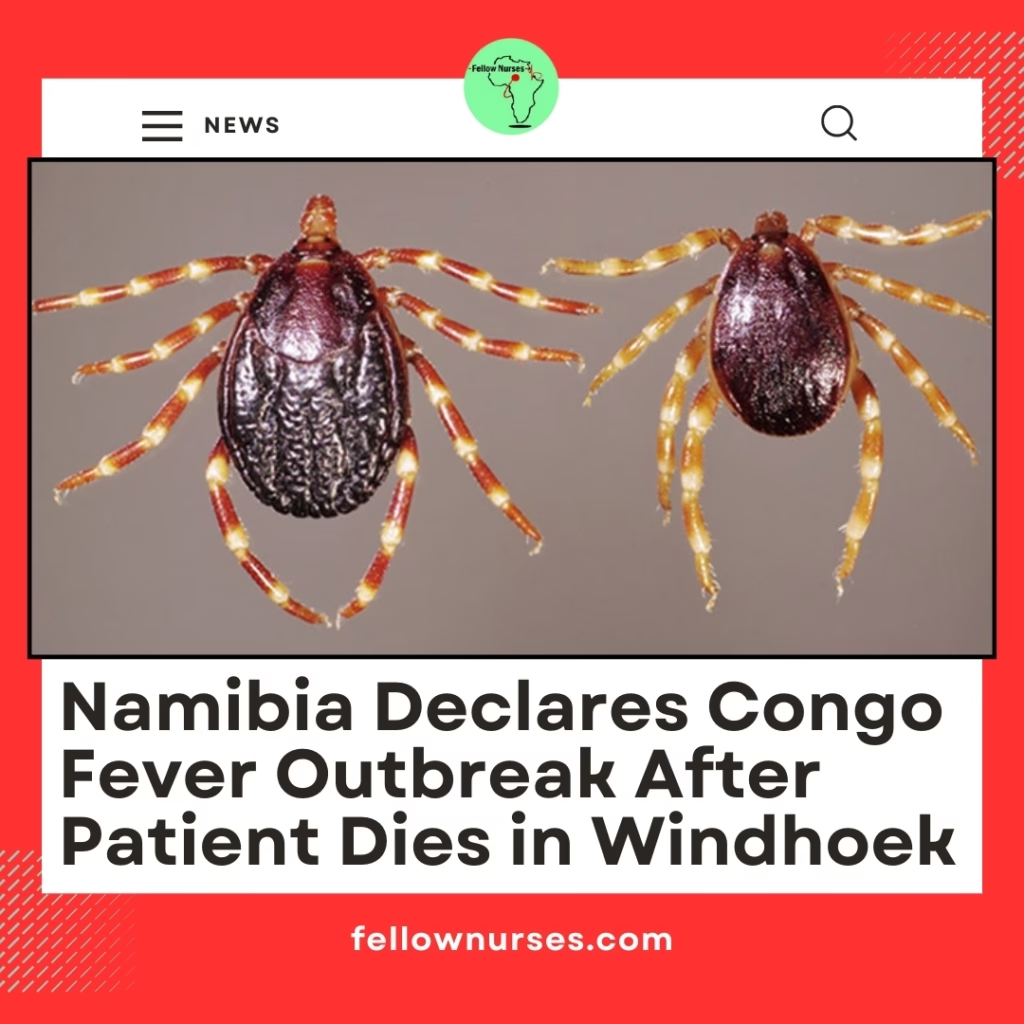Fellow Nurses Africa | Lagos, Nigeria | 24 November, 2025

Namibia has declared a Congo Fever outbreak after the death of a patient in Windhoek, prompting immediate activation of emergency public health measures across the Khomas Region.
The Ministry of Health and Social Services confirmed that laboratory tests identified Crimean-Congo Haemorrhagic Fever (CCHF), a severe viral haemorrhagic disease transmitted by ticks and infected animals.
According to the Ministry, the patient was admitted with symptoms consistent with a viral fever and died shortly after arrival at the facility. The confirmation of CCHF triggered a rapid response, including contact tracing, enhanced surveillance, risk communication, and community sensitization in affected areas.
Congo fever is known for its rapid progression and potential for person-to-person transmission through contact with infected blood or bodily fluids. Health authorities emphasize that early detection and swift isolation significantly reduce the risk of further spread.
Officials have assured the public that containment measures are active and effective. Close contacts of the deceased are being monitored for signs of fever, bleeding, or sudden illness, while community health workers have been deployed to raise awareness and educate residents about preventive behaviors.
The Ministry is also urging livestock farmers, abattoir workers, and individuals in rural or tick-prone areas to take precautions, as these groups have a higher risk of exposure.
What You Should Know About Congo Fever
CCHF is a tick-borne viral disease that can also spread through contact with infected animal tissue or blood.
Symptoms may include:
- Sudden high fever
- Muscle pain
- Headache
- Vomiting
- In severe cases, bleeding or bruising
Anyone experiencing sudden fever after possible tick exposure or animal contact should seek medical attention immediately.
Though Namibia previously recorded a confirmed CCHF outbreak in 2023, the newly reported November case raises fresh concerns about vector control, public awareness, and occupational safety. Health authorities say continued vigilance is essential to prevent wider transmission.
The Ministry reassures citizens that the situation remains under control, and all response teams are actively monitoring developments.










